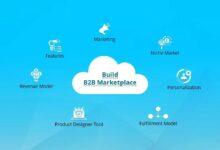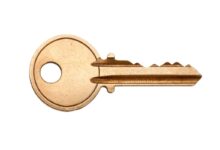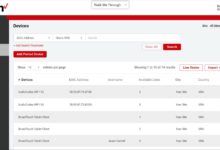CRM System for Small Business: 7 Powerful Reasons to Start Now
Running a small business is no small feat. Juggling customers, sales, and operations can feel overwhelming—until you discover the game-changer: a CRM system for small business. It’s not just for big corporations anymore.
Why a CRM System for Small Business Is No Longer Optional

In today’s hyper-competitive market, small businesses need every advantage they can get. A CRM (Customer Relationship Management) system is no longer a luxury reserved for enterprise companies. It’s a strategic necessity for small businesses aiming to grow, retain customers, and streamline operations. With the right CRM, even a team of five can operate like a well-oiled machine.
What Exactly Is a CRM System?
A CRM system is software designed to manage all your company’s interactions with current and potential customers. It consolidates customer data—like contact information, purchase history, communication logs, and support tickets—into a single, accessible platform. Think of it as a digital hub for everything customer-related.
According to Investopedia, CRM systems help businesses improve relationships, streamline processes, and increase profitability. For small businesses, this means better customer service, smarter sales strategies, and more efficient marketing.
Common Misconceptions About CRM for Small Businesses
Many small business owners believe CRM systems are too complex, too expensive, or only for sales teams. These myths prevent businesses from reaping real benefits. In reality, modern CRM platforms are intuitive, affordable, and designed for teams of all sizes and functions.
For example, a local bakery might use a CRM to track customer birthdays and send personalized discount offers. A freelance graphic designer could use it to manage client communications and project timelines. The versatility is unmatched.
crm system for small business – Crm system for small business menjadi aspek penting yang dibahas di sini.
“CRM isn’t about managing customers—it’s about understanding them.” — Paul Greenberg, CRM Industry Analyst
Top 7 Benefits of a CRM System for Small Business
Implementing a CRM system can transform how a small business operates. From boosting sales to enhancing customer loyalty, the advantages are both immediate and long-term. Let’s dive into the seven most impactful benefits.
1. Centralized Customer Data
One of the biggest challenges small businesses face is scattered customer information. Emails in inboxes, notes in notebooks, phone numbers in cell phones—it’s a recipe for inefficiency and missed opportunities.
A CRM system for small business centralizes all customer data in one secure location. Every interaction—whether it’s a support call, email exchange, or social media message—is logged and accessible to authorized team members. This eliminates duplication and ensures consistency in communication.
For instance, if a customer emails a question on Monday and calls on Wednesday, the support agent can instantly see the full history and provide a seamless experience. No more asking, “Can you repeat that?”
2. Improved Sales Pipeline Management
Sales pipelines can get messy fast, especially when managed with spreadsheets or sticky notes. A CRM system for small business provides visual sales pipelines that track leads from initial contact to closing.
Tools like Zoho CRM and HubSpot CRM offer drag-and-drop deal stages, automated follow-ups, and forecasting features. This helps small business owners identify bottlenecks, prioritize high-value leads, and close deals faster.
crm system for small business – Crm system for small business menjadi aspek penting yang dibahas di sini.
Imagine knowing exactly which leads are ready to buy and which need nurturing—without guesswork. That’s the power of CRM-driven sales management.
3. Enhanced Customer Service and Support
Great customer service is a key differentiator for small businesses. A CRM system enables faster response times, personalized interactions, and proactive support.
With features like ticketing systems, knowledge bases, and automated responses, small businesses can deliver enterprise-level service without the enterprise cost. For example, a CRM can automatically assign support tickets to the right team member based on issue type or workload.
Additionally, CRM systems often integrate with live chat, email, and phone systems, giving support teams a 360-degree view of the customer. This leads to higher satisfaction and loyalty.
How to Choose the Right CRM System for Small Business
Not all CRM systems are created equal. Choosing the right one depends on your business size, industry, budget, and goals. Here’s a step-by-step guide to help you make the best decision.
1. Define Your Business Needs
Start by identifying your pain points. Are you losing leads? Struggling with follow-ups? Drowning in customer emails? List your top three challenges.
crm system for small business – Crm system for small business menjadi aspek penting yang dibahas di sini.
Next, determine what features are essential. Do you need email integration? Mobile access? Marketing automation? Sales forecasting? Prioritize must-have features over nice-to-haves.
For example, a consulting firm might prioritize appointment scheduling and contract tracking, while an e-commerce store might need order history and customer segmentation.
2. Evaluate Scalability and Integration
Your CRM should grow with your business. Look for platforms that offer tiered pricing and scalable features. Avoid systems that lock you into long-term contracts or charge exorbitant fees for upgrades.
Integration is equally important. Your CRM should seamlessly connect with tools you already use—like email, accounting software (e.g., QuickBooks), e-commerce platforms (e.g., Shopify), and marketing tools (e.g., Mailchimp).
For instance, Salesforce Essentials is designed specifically for small businesses and integrates with over 1,000 apps. This ensures smooth data flow across your tech stack.
3. Consider User-Friendliness and Training
No matter how powerful a CRM is, it’s useless if your team won’t use it. Look for platforms with intuitive interfaces, mobile apps, and minimal learning curves.
crm system for small business – Crm system for small business menjadi aspek penting yang dibahas di sini.
Many CRM providers offer free trials, onboarding support, and training resources. Take advantage of these. Test the system with a small team before rolling it out company-wide.
HubSpot CRM, for example, is known for its clean interface and extensive free training library. It’s a favorite among small businesses for its ease of use.
Top 5 CRM Systems for Small Business in 2024
With so many options on the market, choosing the right CRM can be overwhelming. Here’s a curated list of the top five CRM systems for small business, based on features, pricing, and user reviews.
1. HubSpot CRM
HubSpot CRM is a top choice for small businesses due to its powerful free plan, intuitive design, and robust feature set. It includes contact management, email tracking, deal pipelines, and live chat.
Its strength lies in integration with marketing, sales, and service hubs. Even the free version allows automation, meeting scheduling, and reporting. Paid plans unlock advanced features like custom objects and predictive lead scoring.
Best for: Startups and small businesses focused on inbound marketing and sales.
crm system for small business – Crm system for small business menjadi aspek penting yang dibahas di sini.
2. Zoho CRM
Zoho CRM offers exceptional value with a wide range of features at competitive prices. It includes AI-powered sales assistant (Zia), workflow automation, and multi-channel communication.
It’s highly customizable and integrates with over 40 Zoho apps and 1,000 third-party tools. The mobile app is robust, allowing field sales teams to stay connected.
Best for: Small businesses with complex sales processes or those already using Zoho’s ecosystem.
3. Salesforce Essentials
Salesforce, the global CRM leader, offers Essentials—a simplified version tailored for small businesses. It includes lead and contact management, activity tracking, and real-time sales reports.
It’s cloud-based, secure, and scalable. While more expensive than some competitors, it offers enterprise-grade reliability and support.
Best for: Small businesses planning rapid growth or those in regulated industries.
crm system for small business – Crm system for small business menjadi aspek penting yang dibahas di sini.
4. Freshsales (by Freshworks)
Freshsales stands out with its AI-driven insights and built-in phone and email. It automatically captures leads from websites and social media, scores them based on behavior, and suggests next steps.
The interface is clean, and setup is quick. It also offers visual deal timelines and sales cadence automation.
Best for: Sales-driven small businesses looking for AI-powered efficiency.
5. Insightly
Insightly combines CRM with project management, making it ideal for service-based businesses. It allows you to track customer interactions, manage projects, and link deals to tasks.
Its strength is in relationship linking—showing how contacts, companies, and projects are connected. This is perfect for consultants, agencies, and contractors.
Best for: Small businesses that manage client projects alongside sales.
crm system for small business – Crm system for small business menjadi aspek penting yang dibahas di sini.
How to Implement a CRM System for Small Business Successfully
Choosing a CRM is just the first step. Successful implementation is what delivers real results. Many small businesses fail not because of the tool, but because of poor adoption and setup.
1. Start with a Clear Plan
Define your goals: What do you want to achieve with your CRM? Examples include reducing response time by 30%, increasing lead conversion by 20%, or improving customer retention.
Map out your customer journey—from first contact to post-sale support. Identify touchpoints where the CRM can add value. This ensures the system aligns with your business processes.
2. Clean and Migrate Your Data
Garbage in, garbage out. Before importing data, clean it. Remove duplicates, update outdated contact info, and standardize formats (e.g., phone numbers, addresses).
Most CRM platforms offer data import tools for CSV files. Some even provide migration services. Take your time—accurate data is the foundation of a successful CRM.
3. Train Your Team and Encourage Adoption
Even the best CRM fails if employees don’t use it. Provide hands-on training, create simple guides, and assign a CRM champion within the team.
crm system for small business – Crm system for small business menjadi aspek penting yang dibahas di sini.
Start with core features and gradually introduce advanced tools. Celebrate early wins—like closing a deal using the CRM—to build momentum.
Tip: Gamify adoption. Offer small rewards for consistent usage or data entry accuracy.
Common CRM Implementation Mistakes to Avoid
While CRM systems offer immense benefits, poor implementation can lead to frustration and wasted investment. Here are the most common pitfalls and how to avoid them.
1. Over-Customization Too Early
It’s tempting to tweak every field and workflow from day one. But over-customizing before understanding how the CRM works can lead to confusion and technical debt.
Instead, start with default settings. Use the CRM as intended for the first 30–60 days. Then, make incremental improvements based on real usage.
2. Lack of Leadership Buy-In
If owners or managers don’t use the CRM, employees won’t either. Leadership must lead by example—logging calls, updating deals, and reviewing reports.
crm system for small business – Crm system for small business menjadi aspek penting yang dibahas di sini.
When the boss uses the CRM daily, it sends a clear message: this tool matters.
3. Ignoring Data Security
Customer data is sensitive. Ensure your CRM complies with data protection regulations like GDPR or CCPA. Use strong passwords, enable two-factor authentication, and limit access based on roles.
Regularly back up data and review security settings. A breach can destroy customer trust and damage your reputation.
Future Trends in CRM for Small Business
The CRM landscape is evolving fast. Small businesses that stay ahead of trends can gain a competitive edge. Here are the key developments shaping the future of CRM.
1. AI and Automation
Artificial intelligence is no longer science fiction. Modern CRMs use AI to predict customer behavior, recommend next actions, and automate repetitive tasks.
For example, Zia in Zoho CRM can predict deal closure probability, while HubSpot’s AI writes email subject lines. These tools save time and improve decision-making.
crm system for small business – Crm system for small business menjadi aspek penting yang dibahas di sini.
2. Mobile-First CRM
With remote work and field sales on the rise, mobile CRM access is essential. Future CRMs will offer richer mobile experiences—offline access, voice input, and augmented reality support.
Small businesses with mobile teams should prioritize platforms with robust mobile apps.
3. Integration with Communication Platforms
CRMs are becoming hubs that connect with Slack, WhatsApp, Teams, and social media. This allows businesses to manage all customer conversations in one place.
For instance, a customer messages via Facebook Messenger, and the CRM logs it, assigns it to an agent, and tracks resolution—all without switching apps.
What is a CRM system for small business?
A CRM system for small business is software that helps manage customer interactions, sales pipelines, and support processes. It centralizes data, automates tasks, and improves customer relationships—all tailored for small teams with limited resources.
crm system for small business – Crm system for small business menjadi aspek penting yang dibahas di sini.
Is a CRM worth it for a small business?
Yes. A CRM can increase sales efficiency, improve customer retention, and save time on administrative tasks. Even businesses with just a few employees see measurable ROI from using a CRM.
What is the best free CRM for small business?
HubSpot CRM offers the most comprehensive free plan, including contact management, email tracking, deal pipelines, and reporting. It’s ideal for startups and small businesses on a budget.
How much does a CRM system cost for a small business?
Costs vary. Many CRMs offer free plans for basic features. Paid plans typically range from $10 to $50 per user per month. Some, like Salesforce Essentials, start at $25/user/month.
crm system for small business – Crm system for small business menjadi aspek penting yang dibahas di sini.
Can I use a CRM for marketing and sales?
Absolutely. Modern CRMs integrate marketing automation, email campaigns, lead scoring, and sales tracking. This allows small businesses to run coordinated marketing and sales efforts from a single platform.
Adopting a CRM system for small business is one of the smartest moves you can make. It brings order to chaos, turns data into insights, and helps you build stronger customer relationships. Whether you’re a solopreneur or a growing team, the right CRM can scale with you and deliver real results. The key is to start small, focus on adoption, and continuously optimize. In today’s digital world, a CRM isn’t just a tool—it’s your business’s competitive advantage.
Further Reading:






